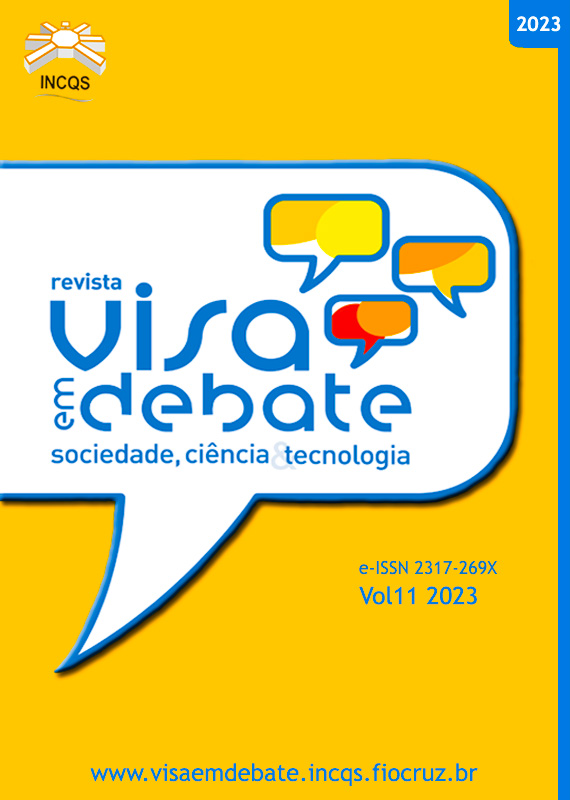Hygienic-sanitary conditions of open-air fairs and training on good manufacturing practices: a continuous work
Vigil Sanit Debate, Rio de Janeiro, 2023, v.11: e02029 | Published on: 9/05/2023
DOI:
https://doi.org/10.22239/2317-269x.02029Keywords:
Good Handling Practices, Open-air Markets, Foodborne Diseases, Ready-to-eat FoodsAbstract
Introduction: Food offered at open-air markets may be associated with cases of Food and Waterborne Diseases (FWBD), since the local structure is usually inadequate. This fact is reflected on the hygienic-sanitary conditions during the preparation, transport, exposure, and consumption of commercialized foods, which is considered a serious public health problem. Also, the lack of knowledge on the part of food handlers contributes to the dissemination of FWBA. Objective: To characterize the hygienic-sanitary conditions of open-air markets in the city of Sete Lagoas - Minas Gerais and to evaluate the impact of offering short training courses on Good Manufacturing Practices. Method: An exploratory, descriptive, quantitative, and qualitative study was carried out at street markets, based on the following activities: 1) Establishment of partnerships with public agencies; 2) Characterization of the hygienic-sanitary conditions of open-air markets; 3) Training of handlers and assessment of learning. Results: The fairs, for the most part, were structurally and organizationally distinct, but with similar problems, such as the absence or scarcity of bathrooms, trash cans with pedals and lids, drinking water and energy points, and the use of inappropriate clothing by the handlers. There was an increase in the percentage of correct answers for most questions after each mini-course, which shows that continued training is of paramount importance for the acquisition and apprehension of knowledge regarding: Good Manufacturing Practices; Fresh Foods and Canned Foods; and Labeling. Conclusions: The transfer of the results generated in the development of the Program to the competent bodies will help in the maintenance of marketers, minimizing risks, and offering safer products for consumption.
Downloads
Published
Issue
Section
License
Copyright (c) 2023 Amanda Nayara Abreu Silva , Maysa Nayara Gabrielle Silva , Lorraine Moreira dos Reis, Fernanda Cristina Esteves de Oliveira , Andréia Marçal da Silva (Autor)

This work is licensed under a Creative Commons Attribution 4.0 International License.
COPYRIGHT ALLOWANCE The author (s) hereinafter designated as the ASSIGNOR hereby assign and transfer, free of charge, the ownership of the copyrights related to this ARTICLE to the Vigilância Sanitária em Debate: Sociedade, Ciência & Tecnologia (Health Surveillance under Debate: Society, Science & Technology) – Visa em Debate, represented by FUNDAÇÃO OSWALDO CRUZ, established at Av. Brasil, nº 4365, Manguinhos, Rio de Janeiro, RJ, Brazil, CEP 21045-900, under the conditions set out below: (a) The terms and conditions set forth in this Agreement shall apply to the following: 1. The ASSIGNOR declares that they s(he) is (are) the author (s) and owner (s) of the copyrighted property of the ARTICLE submitted. 2. The ASSIGNOR declares that the ARTICLE does not infringe the copyrights and / or other property rights of third parties, that the disclosure of images (if any) has been authorized and that they s(he) assume(s) full moral and / or property liability for its content, before third parties. 3. THE ASSIGNOR assigns and transfers all copyrights relating to the ARTICLE to the ASSIGNEE, especially the rights of editing, publication, translation into another language and reproduction by any process or technique. The ASSIGNEE becomes the exclusive owner of the rights related to the ARTICLE, and any reproduction, totally or partially, is prohibited in any other means of publicity, printed or electronic, without prior written authorization from the ASSIGNEE. 4. The assignment is free and, therefore, there will be no remuneration for the use of the ARTICLE by the ASSIGNEE.






